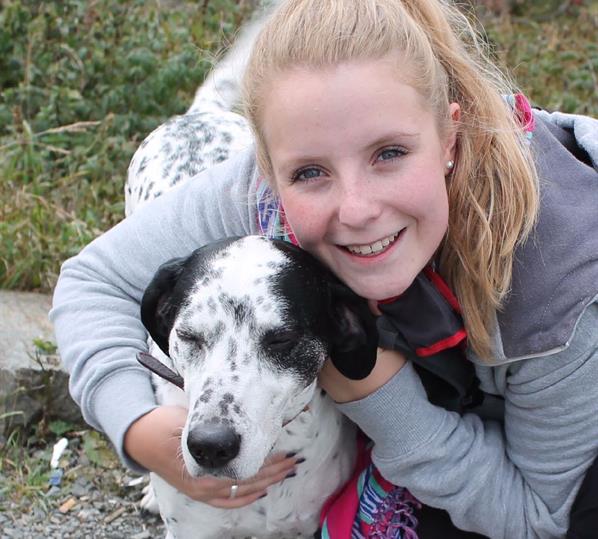
Rebecca Haughton (RH) is an IB alumna and a qualified chartered accountant working in the UK. We talked with her about her time as an IB student, her career and the advantages of the IB Programme.
Please, introduce yourself to us.
RH: My name is Rebecca Haughton. I studied the IB at Frankfurt International School, graduating in 2010. The classes I took were: Higher level – Physics, Mathematics and Business & Management as well as Standard level – English, German A2 and French. I am now a qualified chartered accountant working in a small practice in the UK.
What were your first career steps after receiving your IB Diploma? Which university did you attend after your IB education and which university degrees were bestowed?
RH: After completing the IB I studied at Loughborough University. I read International Business and graduated with a 2:1 (honours). The degree I chose was a sandwich course, which means that I completed my first two years at university, did a work placement in my third year, before returning to university for my final year. My 12-month placement was with Deloitte in Birmingham. Within the placement I also completed a secondment to the Dominos finance department, working specifically within the team dealing with the German operations. I was chosen to do this especially as I had a bilingual diploma from school.
What was your first job after IB and university?
RH: After university I returned to Deloitte, but moved to Bristol. I stayed at the company for 9 months and then moved to a smaller accountancy firm in North Devon called Davisons. I have been at Davisons for 16 months now working as a chartered accountant (ACA).
Was your IB Diploma ever a topic in a job interview?
RH: Yes, my diploma was discussed in all of my job interviews. It was discussed in length as none of my employers were familiar with the diploma. They were very intrigued as to how it all worked and the difference between the IB and the UK curriculum (A Levels). They asked me what classes I took, and how it helped me at University and in applying for jobs. They were particularly interested in the difference between higher level and standard level, as well as theory of knowledge and the extended essay. They were impressed by the breadth of the diploma, as UK students are only required to study three topics.
How do you evaluate the IB Diploma as preparation for university? Do you think the IB Diploma is an advantage in comparison with other degrees?
RH: The IB prepared me well for university. Not just because I understood how to write academic essays and learnt study techniques, but also because a lot of my topics were already covered by the IB, and so I had already learnt a lot of the material. The IB is also useful in helping you manage your own time when you have a lot of pressures. For example, in school you learn how to balance your time between (for example) mathematics, English and history assignments. This translates well to University, where not only do you have to balance your time between your different modules, but you also have to ensure you find time for your job applications, dissertation, tutorial work and regular lecture reading. A lot of the work is not particularly structured, meaning you are expected to know what to study and how much work to do. I think the IB prepares you for this.
What do you value most concerning your IB education, which elements of the IB Programme do you still remember today?
RH: I value the varied knowledge that I accumulated across the two years – I really appreciate that studying the IB gave me the freedom to study what I wanted later on, without any restrictions. It allowed me to pursue different areas of education, rather than forcing me to choose a limited number of topics – I think this would have been difficult as a teenager. What do I remember today? Staying up all night to complete my maths IA (Internal Assignments) and getting together on weekends to review difficult physics topics. This might sound like a bad memory, but it forged a lot of friendships that helped me get through the 2 years – friendships that I still have now.
What are the biggest challenges of the IB Programme?
RH: The workload! But I think what the IB does well (in comparison to universities and other professional tuition) is ensure that you have steps to follow along the way to make sure you are prepared for your final assignments and final exams. The workload might seem intimidating at first, but when you break it down into the individual components, it isn’t that overwhelming.
Whom would you advise to receive an IB education? What skills should a student have in order to receive the IB Diploma?
RH: To be successful you need to be driven and motivated – whether that be by your future goals, or your desire to perform well. The skills that students should have include: Time management – you need to be able to balance your school assignments, but also make sure that you balance the rest of your life – sport, friends, family etc.; Organisation – being organised will help you manage your time and ensure you do not miss essential assignments. It will also make sure that you have a good understanding of all your topics when you want to revise.
Would you choose the IB Programme for your school education again?
RH: Definitely – no question about it! And if I have children in the future, I’m going to recommend they do the same! I would never swap the education I received – I believe it is much superior to the education experienced by my peers.
Thank you very much!
Photography (c) Rebecca Haughton.